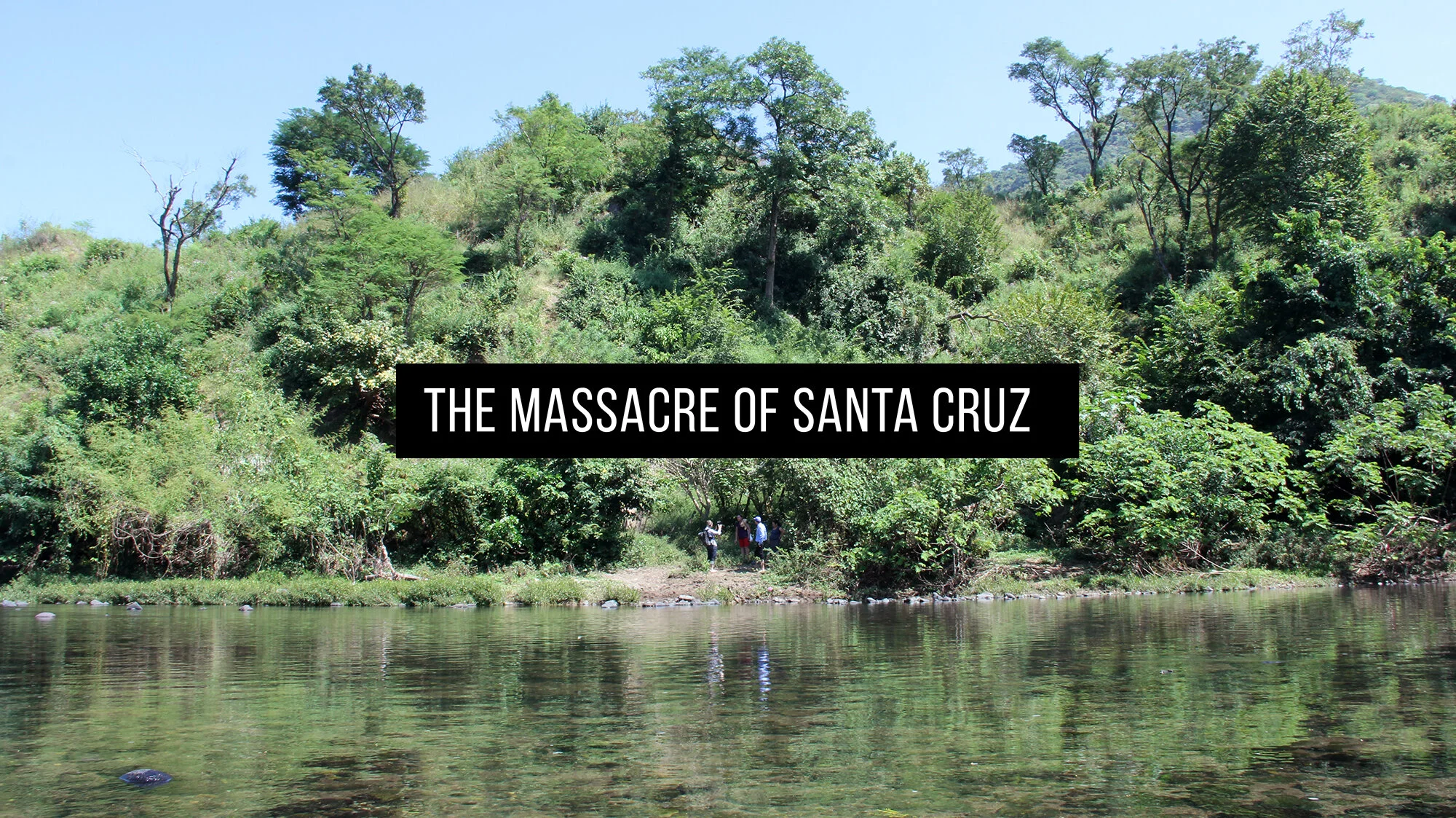God Alone was with Us: The Massacre of Santa Cruz
In November, 1981, during the height of the Salvadoran armed conflict, an estimated 1,200 soldiers invaded the rural northern province of Cabañas, El Salvador, to carry out a “cleansing operation.” Survivors of the invasion, however, tell a story of carnage, in which the armed forces directly targeted the unarmed civilian population, including the elderly and women carrying children, using ground forces and aerial bombardment and resulting in the death of untold numbers of campesinos. In particular, hundreds are estimated to have been killed in the massacre of Santa Cruz, which took place at the site of the schoolhouse in Santa Cruz, in the municipality of Ilobasco, department of Cabañas, on November 14, 1981.
In recent years, these events have received renewed attention thanks to the survivors’ ongoing struggle for justice. In March 2014, for example, hundreds gathered in the rural community of Santa Marta, Cabañas, for a restorative justice tribunal sponsored by the Institute of Human Rights at the Universidad Centroamericana “José Simeón Cañas” in San Salvador. This event featured public testimony from survivors of this massacre and other related atrocities. Multiple survivors of the massacre have also provided sworn testimony to investigating prosecutors in the Salvadoran Fiscalía General. Despite this, the Fiscalía has thus far failed to conduct a timely or thorough investigation into these events. This effective denial of justice constitutes an ongoing violation of Salvadorans’ fundamental rights.
Since 2013, Unfinished Sentences has worked with partners in El Salvador, Spain, and the United States in an effort to understand and document what happened at Santa Cruz.
Read the full report God Alone was with Us: The Massacre of Santa Cruz
For more info visit Unfinished Sentences, a project to encourage public participation in support of human rights in El Salvador. Produced for the UW Center for Human Rights.
Project partners: University of Washington Center for Human Rights, Institute of Human Rights at the Universidad Centroamericana “José Simeón Cañas”, Philip Bourgois
Roles: Videographer, Editor, Project Manager


